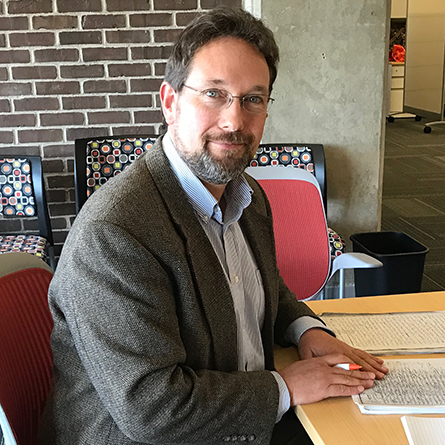
Professor is leading expert for home care providers in court battle with California

Professor and economist Candace Howes is the leading expert in a class action lawsuit against the state of California that could affect hundreds of thousands of residents there. The Service Employees International Union (SEIU), which represents home- and community-based care providers in the state, is suing the California government to prevent a proposed $2 reduction in the maximum reimbursable hourly wage for Medicaid-funded care providers, a plan supporters say will save the cash-strapped state $90 million.
Howes, an expert in labor economics, is helping the union argue that such a cut would lead to a significant increase in the turnover rate for care providers, resulting in a diminished quality of care for the consumers and increased costs to the state.
"The long-term care of elderly and disabled people with limited means in the United States is provided through Medicaid, either in the form of home- and community-based care, or in nursing homes," Howes said. "Essentially, we are arguing that a $2 hourly wage cut will have a significant negative impact on the quality and consistency of care for the consumers, who are protected by the Americans with Disabilities Act and the Medicaid Act."
Howes' reputation as an industry analyst and foremost researcher on the problems facing the long-term care workforce made her the perfect expert for the SEIU. She has spent eight years studying how low wages and benefits contribute to the shortage of home care providers in California, and much of her research has been funded with a $500,000 grant from the Robert Wood Johnson Foundation and Atlantic Philanthropies as part of the Better Jobs Better Care initiative. Her work has been published in scholarly journals, including "The Gerontologist," "Industrial Relations" and "State of California Labor," and she is currently working on a book with the Working Group on Care at the Russell Sage Foundation.
Using her findings from prior research, data from the State of California's Department of Social Services and publicly available information from government Web sites, Howes conducted a detailed analysis of the potential effects of the wage cuts for the SEIU.
"I have studied the effect of wage cuts for California care providers, and when you reduce wages, turnover increases," Howes said. "These workers can't always be replaced, even during times of high unemployment. This leads to a disruption in care for the consumer, and many more will be forced to enter nursing homes."
Howes estimates that an additional 1,400 people will be admitted to nursing homes if the proposed wage decrease is realized. And because nursing home care costs significantly more than home care, the state will lose a sizable portion of its expected savings.
"The increased nursing home admissions would cost the state approximately $30 million per year, and possibly more under a range of reasonable assumptions," Howes writes in her affidavit.
In a New York Times blog posting, Nancy Folbre, an economics professor at the University of Massachusetts Amherst, says the California system is widely considered a model for other states, because more than half of the state's Medicaid funds are spent on "high-quality, cost-effective home care services," instead of nursing home care. She points out that if the SEIU fails and the wages are cut, the "success could prove short lived."
In June, however, the SEIU won the first round of its court battle. A U.S. District Court judge issued an injunction preventing the wage decreases until the state has conducted a full analysis of the potential effects of the plan on the consumers.
While the state is appealing, Howes considers the ruling a victory.
"I'm glad there is sunlight being shed on this process," she said. "This is a very poorly documented industry, and I want the state to do the kind of analysis needed to prove how essential this work force is. It's the first step to making sure the people who provide services to some of our most vulnerable citizens are paid a decent wage."
Howes is just one of the many Connecticut College professors who use their expertise to make a difference in the world - then bring those experiences back into the classroom.
"Real world examples and applications are so important to a comprehensive education, and I expect that the students in my seminar on 'Women and Work' this fall will benefit tremendously from seeing how the research I have done was used to help stabilize wages for low wage care workers," Howes said.
August 14, 2009
